29 DECEMBER 2020
The courtroom of the Sincan prison complex, northwest of Ankara, should have been packed for the climax of what was regarded as the trial of the century.
However, when 475 defendants, almost all former military personnel accused of leading Turkey’s 2016 coup attempt, received their verdicts they were separated into multiple rooms and watched the judge via a video link.
Most were handed aggravated life sentences, meaning they will never have a chance of parole. For Kezban Kalin, the mother of one of those convicted, the pain of the outcome was compounded by the emptiness of the public gallery.
“There were only about 30 relatives there on that final day,” Ms Kalin said. “I was surprised, they should have been there.”
Some of the relatives had lost their jobs because they were coming so regularly. But it was Covid precautions that barred them from the day of the verdicts last month.
“It upsets me so much because nobody hears anything about our sons,” said Ms Kalin. “The opposition politicians and the journalists don’t care. If they don’t talk about what is happening, who will?”
Her son Alper, 28, was one of 13 air force cadets who had started their F-16 pilot training at the Akinci airbase in Ankara in June 2016, a month before the putsch unfolded.
The base was the nerve centre of the coup attempt where fighter pilots were dispatched to bomb the parliament and intercept President Erdogan’s jet. They were ordered to stand guard but say they knew nothing about what was happening until the next morning, by which time the revolt had been crushed.
Nonetheless, they stood trial alongside Akin Ozturk,the former commander of the air force, and Fethullah Gulen, the alleged mastermind of the coup, who was tried in absentia.
The cadets only spoke to give their defence statements in the course of the three-and-a-half-year trial. Their verdict was delivered in 15 minutes. They were cleared of murder but convicted of trying to overthrow the constitutional order.
Although they were handed single aggravated life sentences as opposed to the 79 sentences handed concurrently to four of the highest-ranking defendants, their punishment is effectively the same: they will spend the rest of their lives behind bars.
For Ms Kalin, 49, the matriarch of a military family, the ordeal of the past few years has been exacerbated by the overt public hatred towards coup-plotters that has been whipped up by Turkey’s government and media, which is almost entirely loyal to Mr Erdogan. Almost 300,000 people have now been detained, 20,000 of them in the military, and 100,000 are in prison awaiting trial.
Each year the defeat of the coup attempt is commemorated with grandiose events at which Mr Erdogan pledges to keep fighting Turkey’s enemies. The judiciary has been hit hard in the crackdown, losing about a third of its personnel, and Mr Erdogan regularly flexes his muscle over the courts.
The arrests and dismissals in the military continue, creating a culture in which few are willing to speak out or show sympathy for those caught in the dragnet, even though few Turkish families have been left untouched by the purge.
“I visited two of our friends [in prison],” said another cadet who avoided arrest because he had not yet started his training at Akinci by the time of the coup. “I knew it might be risky but I didn’t care. I didn’t tell anyone because I knew I would get a bad reaction.”
Turkey has a history of coups stretching back into the Ottoman era, when elite military units would often plot to overthrow the sultan.
It also has a history of harsh retribution. In 1826 Mahmud II dissolved the Janissary infantry corps after a mutiny, smashing all their gravestones in Istanbul. A century and a half later, the junta that ruled Turkey for three years after the 1980 coup imprisoned and tortured thousands of Kurds, left-wingers and Islamists. In 1997 the military turfed out Necmettin Erbakan, Turkey’s first Islamist prime minister and Mr Erdogan’s political mentor, and punished public religiosity, causing Mr Gulen to flee to the US.
When Mr Erdogan rose to power in 2003 he promised to bring an end to military influence. He has undoubtedly succeeded, taming the generals through waves of prosecutions executed by a judiciary that had been infiltrated by Mr Gulen’s followers, and then by bringing the military chain of command under his control after the 2016 coup attempt.
While few Turks would have wanted that coup to succeed, the response has been as deep and divisive as anything that came after previous revolts. Kemal Kilicdaroglu, the leader of the main opposition party, has referred to Mr Erdogan’s revenge as a “civilian coup”.
The convicted air cadets are waiting to start an appeals process likely to take years. Their families say they are not optimistic.
“It will be up to the judge’s mercy, not the justice system,” said Mefaret Soylu, whose son Ali, 29, is among the imprisoned cadets. “I have never been interested in politics, I never thought that this could happen to me, or especially to my son. With this, I have seen the injustice. And I know that there are more people out there, crying every day.”



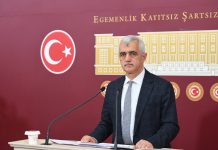
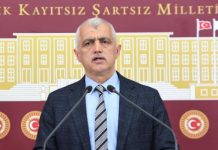


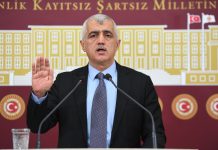
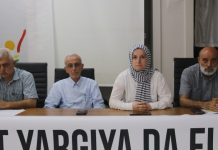

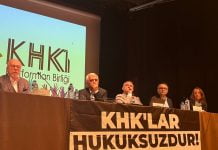

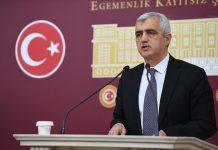
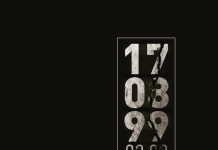
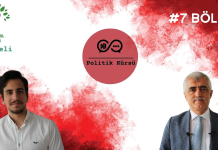
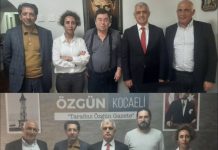
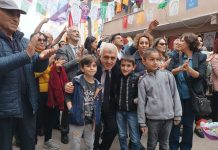








Yorumlar